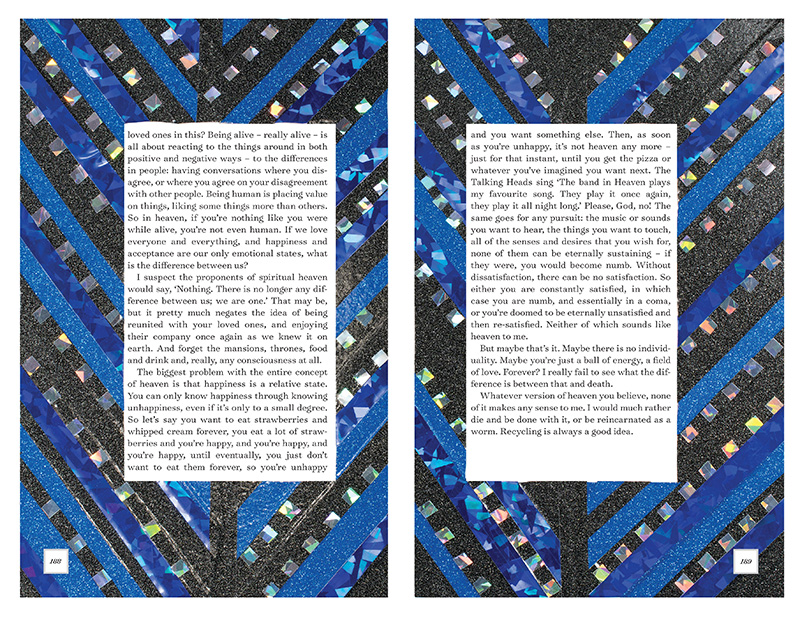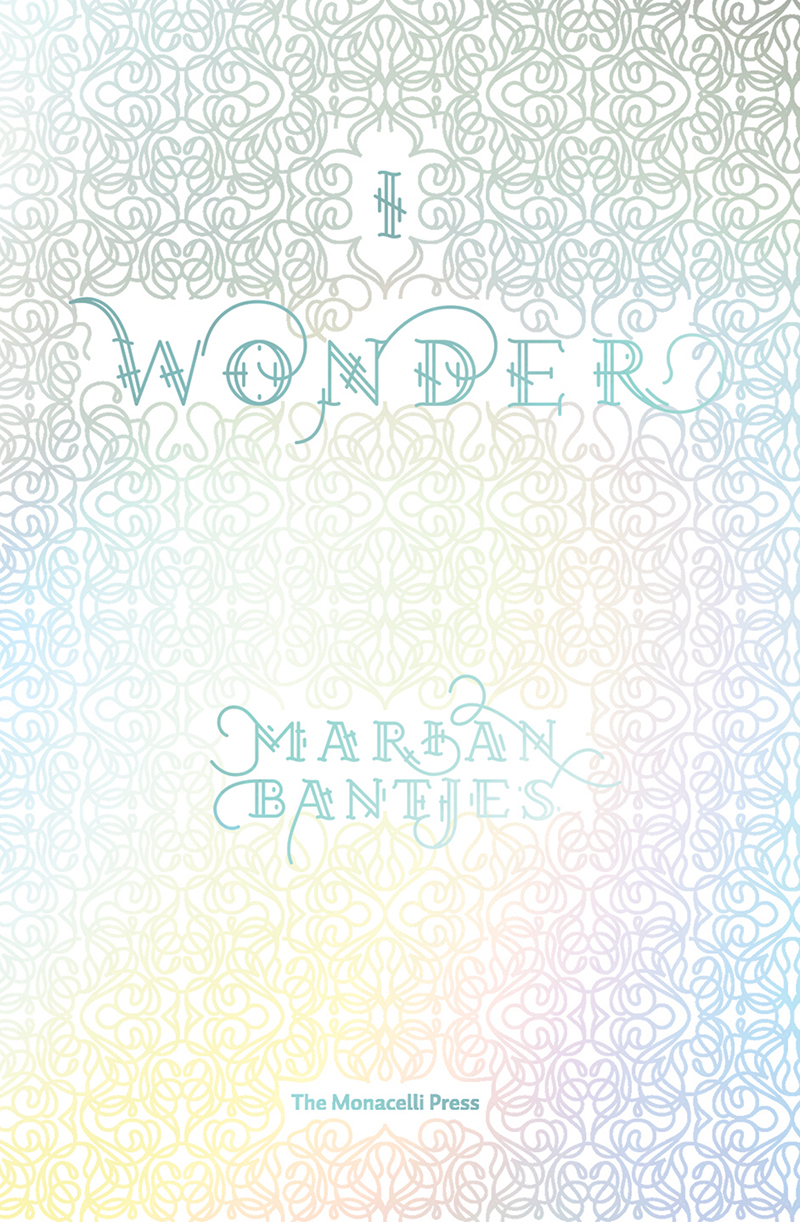
Editor’s Note: The following is a short excerpt from the essay “Heaven,” as it appears in Marian Bantjes’s I Wonder, now out in paperback from The Monacelli Press.
The paradoxical thing about heaven is that it is both highly individualistic and intrinsically social. Most versions of heaven include being with your family and loved ones. But this in itself poses some unresolvable questions. Let’s say, in the version where we choose our own best selves to be in heaven, if my mother chose to be 20, she would be very different from the mother I remember best, in her forties. And she would probably prefer if I were seven, when I loved her the most. So maybe she would appear to me as she was at 40, and I would appear to her as I was at seven, although to herself she’d be 20 and to myself I’d be 30. How would we then interact? Would I sit in her lap, hugging her, and then we would make daisy chains? How long until that got boring? A day? A week? And what about her friends who I never cared for? Would they be around – would I have to interact with them too? What about my grown-up friends who she never even met? How would she perceive her seven-year-old off gambolling about with these strangers? What about our exes who still loved us, but we loved someone else? And would we make new friends in heaven? The social aspects of heaven seem to have all the problems of socializing on earth: people like or love each other, but that doesn’t always extend outward. Any friend of yours is not necessarily a friend of mine. I can’t help but wonder what those earthly Muslim wives and husbands think about each other gaining new mates in heaven.
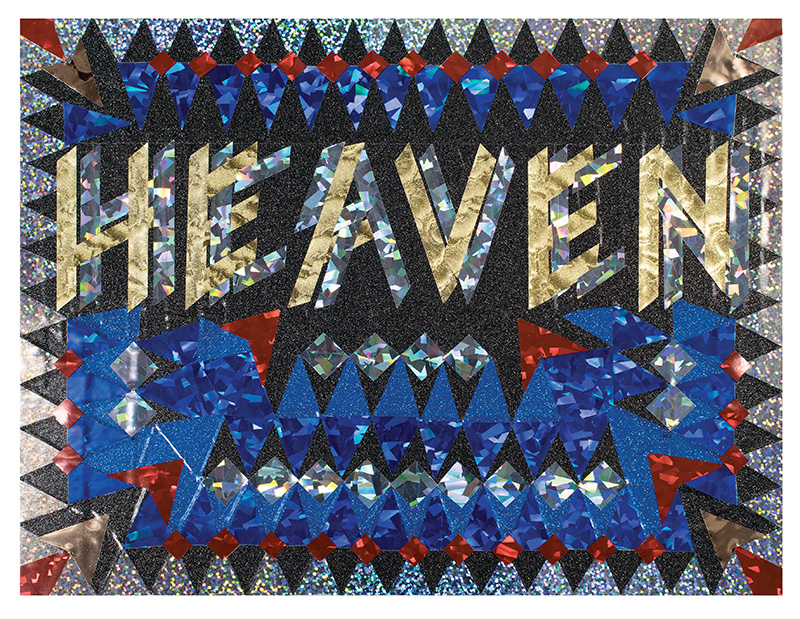
OK, so maybe in some magical state we would all love each other. Mum’s incredibly irritating friend would no longer be irritating, and we would all coexist happily, somehow appearing to each other as representations of the time we loved the most. But would we then be real? If I am just my mother’s fantasy, and she is mine, while at the same time she is a different fantasy of someone else, what is the difference between this and dreaming or remembering? If the interactions we have with other people in heaven are projections, and no real personality-driven experiences are made, I honestly don’t see the point in meeting them again.
What makes us who we are? Surely it’s our opinions and our reactions to events. If you have no more judgment or opinions on anything, you essentially have no personality. You are no longer you, nor are you any different from anyone else. How can you even relate to your loved ones in this? Being alive – really alive – is all about reacting to the things around in both positive and negative ways – to the differences in people: having conversations where you dis- agree, or where you agree on your disagreement with other people. Being human is placing value on things, liking some things more than others. So in heaven, if you’re nothing like you were while alive, you’re not even human. If we love everyone and everything, and happiness and acceptance are our only emotional states, what is the difference between us?
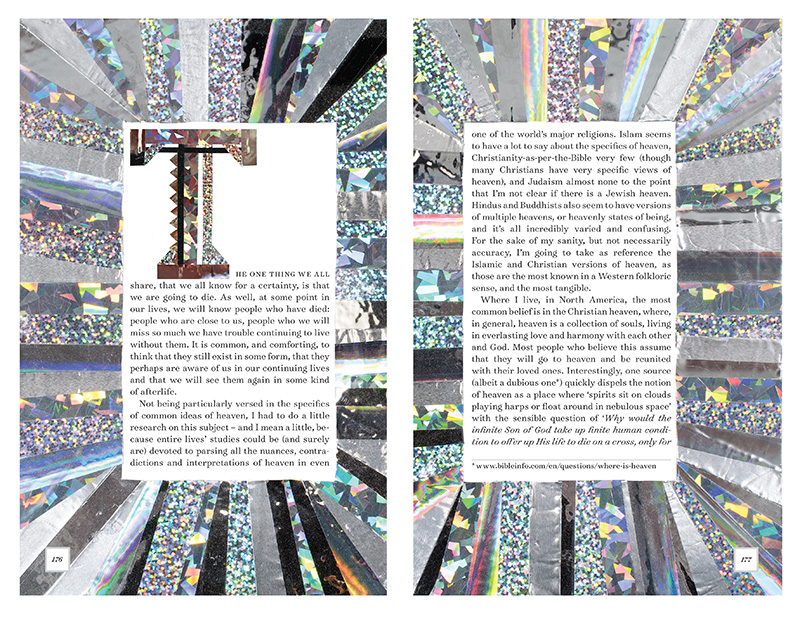
I suspect the proponents of spiritual heaven would say, ‘Nothing. There is no longer any difference between us; we are one.’ That may be, but it pretty much negates the idea of being reunited with your loved ones, and enjoying their company once again as we knew it on earth. And forget the mansions, thrones, food and drink and, really, any consciousness at all.
The biggest problem with the entire concept of heaven is that happiness is a relative state. You can only know happiness through knowing unhappiness, even if it’s only to a small degree. So let’s say you want to eat strawberries and whipped cream forever, you eat a lot of strawberries and you’re happy, and you’re happy, and you’re happy, until eventually, you just don’t want to eat them forever, so you’re unhappy and you want something else. Then, as soon as you’re unhappy, it’s not heaven any more – just for that instant, until you get the pizza or whatever you’ve imagined you want next. The Talking Heads sing ‘The band in Heaven plays my favourite song. They play it once again, they play it all night long.’ Please, God, no! The same goes for any pursuit: the music or sounds you want to hear, the things you want to touch, all of the senses and desires that you wish for, none of them can be eternally sustaining – if they were, you would become numb. Without dissatisfaction, there can be no satisfaction. So either you are constantly satisfied, in which case you are numb, and essentially in a coma, or you’re doomed to be eternally unsatisfied and then re-satisfied. Neither of which sounds like heaven to me.
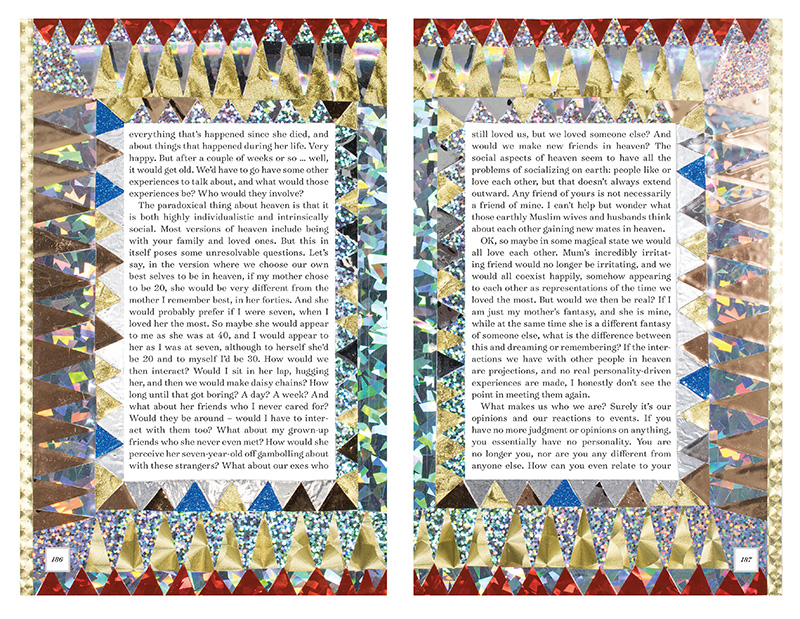
But maybe that’s it. Maybe there is no individuality. Maybe you’re just a ball of energy, a field of love. Forever? I really fail to see what the difference is between that and death.
Whatever version of heaven you believe, none of it makes any sense to me. I would much rather die and be done with it, or be reincarnated as a worm. Recycling is always a good idea.
